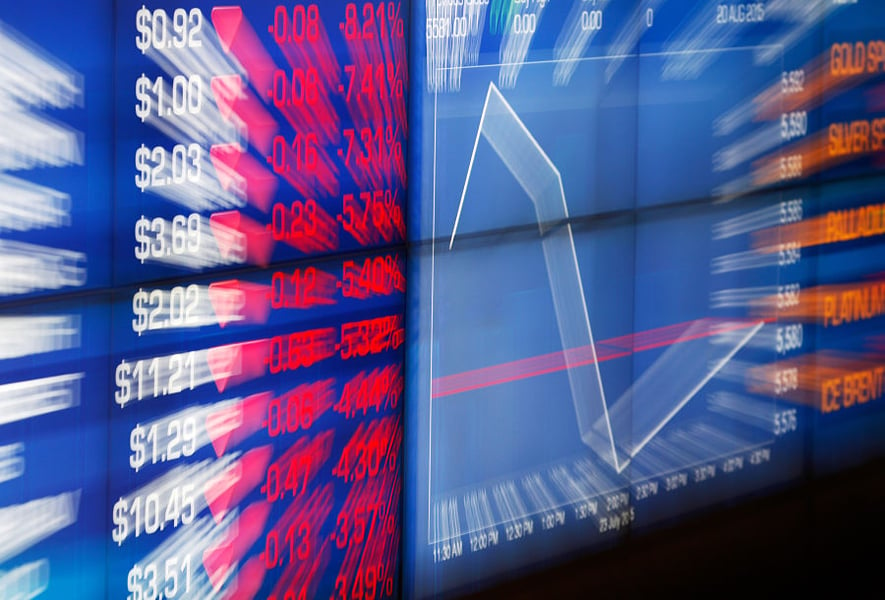

The S&P 500 Index headed to its biggest drop in a month on concerns rising coronavirus cases will hurt the global economy and as prospects dimmed for fiscal aid from Washington before the presidential election.
Losses posted by energy and industrial companies sent the benchmark gauge down 2.9% at one point, though stocks pared losses in the afternoon amid recoveries for the biggest technology companies.
Preliminary number show the S&P 500 closing down 64.42 points, or 1.86%, at 3,400.97, while the Dow was off 650.19 points, or 2.29%, to 27,658.38, and Nasdaq was off 1.64%, or 189.34 points, to 11,358.94.
Sentiment took a hit earlier when White House economic director Larry Kudlow said that President Donald Trump can’t accept parts of the Democrats’ bill. Boeing Co., Lockheed Martin Corp. and Raytheon Technologies Corp. slid on China’s plan to sanction the companies over arms sales to Taiwan.
In Europe, a gauge of tech stocks fell the most since March after German software maker SAP plunged 22% following a cut to its sales forecast and warnings that the pandemic will hurt business through mid-2021. The SAP news also depressed the shares of other business software companies, including Oracle and Salesforce.com.
The dollar strengthened and Treasuries rose, sending yields on the 10-year lower. Oil futures and copper declined, while gold was little changed.
Investors remain focused on the prospect of a U.S. stimulus deal, even as time runs out to finish an aid package before the election. On the virus front, U.S. infections have hit a record in recent days. Europe moved a step closer to the strict rules imposed during the initial wave of the pandemic, with leaders struggling to regain control of the spread while confronting growing opposition to restrictions.
“Fiscal stimulus seems to not be coming as quickly as we thought and the virus is coming quicker than we imagined,” said Keith Buchanan, portfolio manager for Globalt Investments in Atlanta. “Putting those two together is somewhat of a reality check for the markets.”
In Washington, House Speaker Nancy Pelosi and Treasury Secretary Steven Mnuchin are again attempting to reconcile differences on a virus relief package. Differences between the two sides “have narrowed,” but “the more it narrows, the more conditions come up on the other side,” Kudlow told reporters Monday.
“The overwhelming consensus in the market is that while the economic recovery to date is impressive, it still needs help,” said David Donabedian, chief investment officer of CIBC Private Wealth Management. “It’s not ready to stand on its own, and so some fiscal support is necessary and does not really seem to be forthcoming before year-end.”

Relationships are key to our business but advisors are often slow to engage in specific activities designed to foster them.

Whichever path you go down, act now while you're still in control.

Pro-bitcoin professionals, however, say the cryptocurrency has ushered in change.

“LPL has evolved significantly over the last decade and still wants to scale up,” says one industry executive.

Survey findings from the Nationwide Retirement Institute offers pearls of planning wisdom from 60- to 65-year-olds, as well as insights into concerns.
Streamline your outreach with Aidentified's AI-driven solutions
This season’s market volatility: Positioning for rate relief, income growth and the AI rebound
